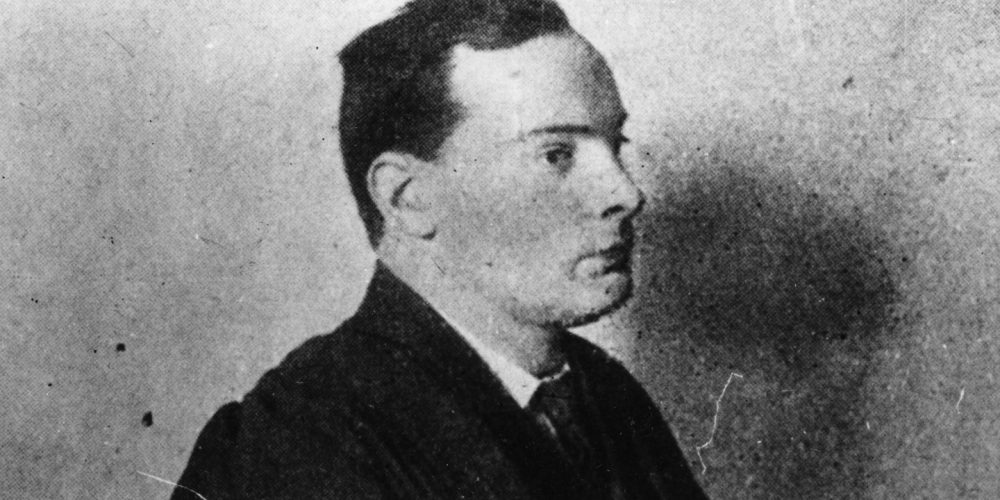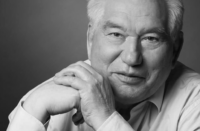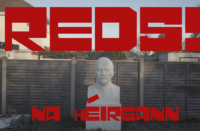Patrick Pearse is an often misunderstood revolutionary leader. He is seen more as a romantic nationalist when compared with James Connolly. Indeed even today some on the left criticise Connolly for making an alliance with Pearse and the Irish Volunteers in 1916.
The problem with this simplistic view is that it completely fails to understand that Pearse was as much of a revolutionary as Connolly.
Lenin said that the great misfortune of the Irish was that they had risen too soon, before the revolutionary upheavals elsewhere in Europe had time to occur. The Great October Socialist Revolution had a massive influence in countries such as Ireland, with mass rallies to celebrate it and the occupation of work-places around the country having a powerful effect on Irish political consciousness. This created the conditions that allowed some of those involved in the national liberation struggle to form the first Communist Party of Ireland in 1921.
Pearse began his political life as part of the Irish-language movement, joining Conradh na Gaeilge at the age of sixteen and becoming editor of its paper, An Claidheamh Soluis, at twenty-three. He took inspiration from such Protestant republicans as Wolfe Tone and Robert Emmet, embracing the Irish republican ideology which was, of course, founded by Presbyterians. This is contrary to the idea that Pearse was a fundamentalist Catholic.
Indeed, at a graveside oration to Wolfe Tone, Pearse reiterated the United Irishmen’s definition of Irish nationhood as being beyond religion or ethnicity, that in Ireland “there must be not two nations or three nations but one nation, that Protestant and Dissenter must be brought into amity with Catholic, and that Catholic, Protestant and Dissenter must unite to achieve freedom for all.”
At the time of Pearse’s political awakening, republicanism was the most revolutionary ideology in Ireland. Karl Marx and Frederick Engels had supported the Fenian prisoners, and the Fenian movement were the Irish representatives in the First International. Pearse would later be one of the leaders of the Irish Republican Brotherhood.
Pearse had a radically different understanding of education from the prevailing views. His experiments at his own school, St Enda’s, were completely different from those of the “Murder Machine,” as he characterised the British schooling system in Ireland. He saw the task of the education system as preparing young people for participation in democracy, as an environment in which it was necessary to create “freedom to the individual school, freedom to the individual teacher, freedom as far as may be to the individual pupil.” His understanding of education was completely revolutionary, and has many lessons for today.
What did Pearse think of the trade union movement, then in its formative years? He was firmly on the side of labour against capital. He wrote in response to the Dublin Lockout in 1913: “My instinct is with the landless man against the lord of lands, and with the breadless man against the master of millions. I may be wrong but I hold it a most terrible sin that there should be landless men in this island of waste yet fertile valleys, and that there should be breadless men in this city where great fortunes are made and destroyed.”
He later wrote in From a Hermitage (1914): “There were many men of money among the Volunteers of 1778–1783: it was one of the weaknesses of the movement. Those who have are always inclined to hold, always afraid to risk. No good cause in Ireland appeals for help in vain provided those to whom it appeals are sufficiently poor.”
As for politics, Pearse wrote in The Sovereign People that “no private right of property is good as against the public right of the nation. But the nation is under a moral obligation so to exercise its public right as to secure strictly equal rights and liberties to every man and woman within the nation … It is for the nation to determine to what extent private property may be held by its members and in what items of the nation’s material resources private property shall be allowed … Let no man be mistaken as to who will be lord in Ireland when Ireland is free. The people will be lord and master.”
Pearse was a revolutionary democrat. His alliance with Connolly was complementary for both leaders. His vision of a risen people, taking what they are entitled to, is still our demand in our own country, where the denial of democracy has led to partition and two states caught in the vice-grip of imperialism, with inequality and oppression being the norm. The only solution is the socialist republic, the republic of Tone, Connolly, Pearse, Marx, and Lenin.






